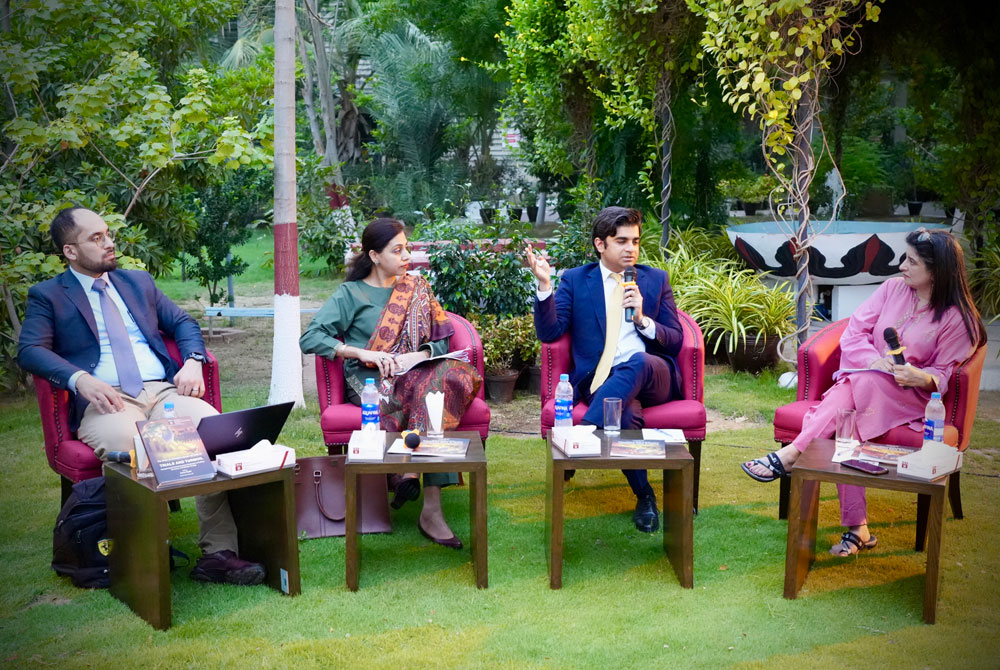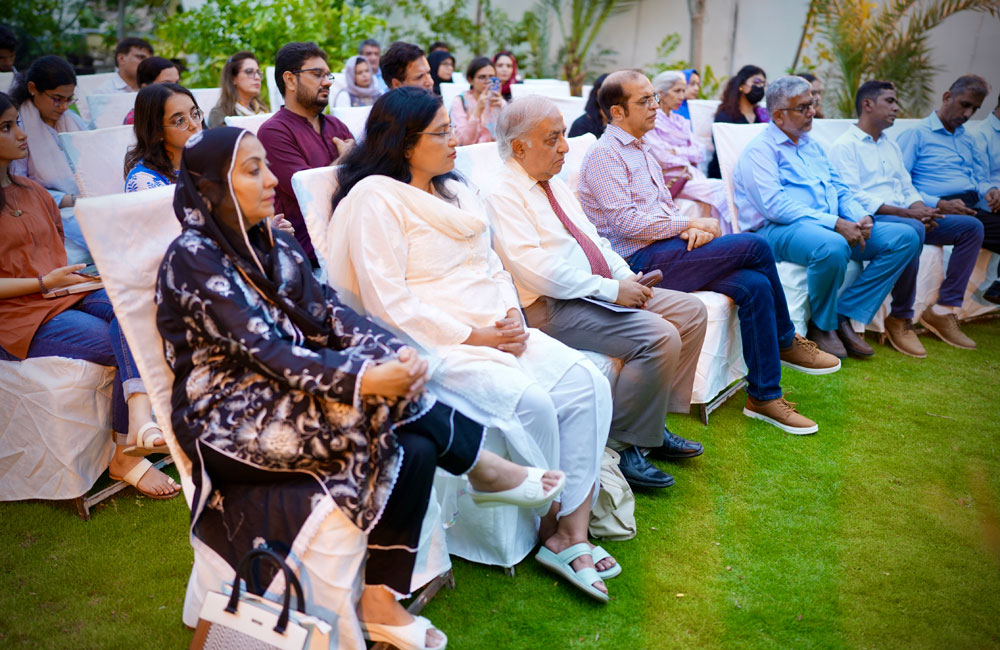IBA Karachi launches report on 'The State of Pakistan's Economy 2023-24'
July 18, 2023: The Institute of Business Administration (IBA), Karachi successfully launched its report titled 'The State of Pakistan's Economy 2023-24 | Trials and Turmoil: Navigating the Interconnected Challenges of Politics, Economy, and Climate Change'. The report is authored by the esteemed faculty members of the Department of Economics, School of Economics and Social Sciences (SESS). The report launch was held at the IBA Main Campus. This comprehensive report provides a critical analysis of the persistent issues faced by Pakistan and offers valuable recommendations for sustainable economic growth and societal well-being.
The report sheds light on three key challenges that have significantly impacted the nation: the political situation, economic challenges, floods, and climate change. Through extensive research and econometric projections, the report offered insightful policy recommendations to address these interconnected challenges. Its aim is to guide policymakers, academia, and the government in improving Pakistan's economy by fostering increased exports, resolving issues in the energy sector, and building resilient communities against floods.
The event featured a panel discussion comprising renowned experts, providing a platform for insightful discussions on the report's findings and recommendations. The panelists included Dr. Nooreen Mujahid, Director, Applied Economics Research Centre (AERC), University of Karachi; Dr. Ali Hasanain, Associate Professor, LUMS; and Mr. Ammar Habib Khan, Chief Executive Officer, CreditBook Financial Services. Dr. S Akbar Zaidi, Executive Director, IBA; and Dr. Syed Jaffar Ahmed, Member, Board of Governors (BOG), IBA also attended the discussion which was moderated by Dr. Asma Hyder, Dean, School of Economics and Social Sciences, IBA. The event was also attended by members from the academia, corporate sectors, finance sectors, media, faculty members and PhD students.
Addressing the audience, Dr. Mujahid stated, "This report serves as a timely and comprehensive analysis of the challenges facing Pakistan's economy. It offers actionable recommendations for policymakers to navigate the trials and turmoil and foster sustainable economic growth." Furthermore, while speaking about the energy sector of Pakistan, she mentioned that the provinces can play a significant role, particularly in improving the strategies related to energy, considering their own challenges and resources that will eventually provide regional benefit on a micro level and national benefit on a macro level.
Dr. Hasanain, while emphasizing taxation and its relationship with economic development, mentioned that taxation is not a technical problem, but a political problem, and the provinces need to be given more responsibility to generate political solutions. He also opined that the report's insights on the interplay between politics, economy, and climate change provide a valuable framework for addressing the key challenges faced by Pakistan and that it is essential for stakeholders to heed the recommendations for a resilient economic future.
Commenting on multiple sectors in Pakistan and highlighting the importance of each, Mr. Khan emphasized, "As the report highlights, strategic measures are required to strengthen the energy sector and enhance exports. The findings and recommendations are crucial for shaping a prosperous and stable economic landscape."
Delivering the closing remarks, Dr. Zaidi thanked the panelists for their invaluable insights and commented, "The Pakistan economy is at a particularly critical juncture, far worse than what has become normalized. We need to realize how deep we are in the hole before we can dig ourselves out. It is obvious that doing things the way we have for decades has not worked, time to rethink and disrupt old patterns."
Following the discussion, the attendees engaged in a Q&A session with the panelists.
The event concluded with Dr. Ahmed presenting mementos to the panelists.


